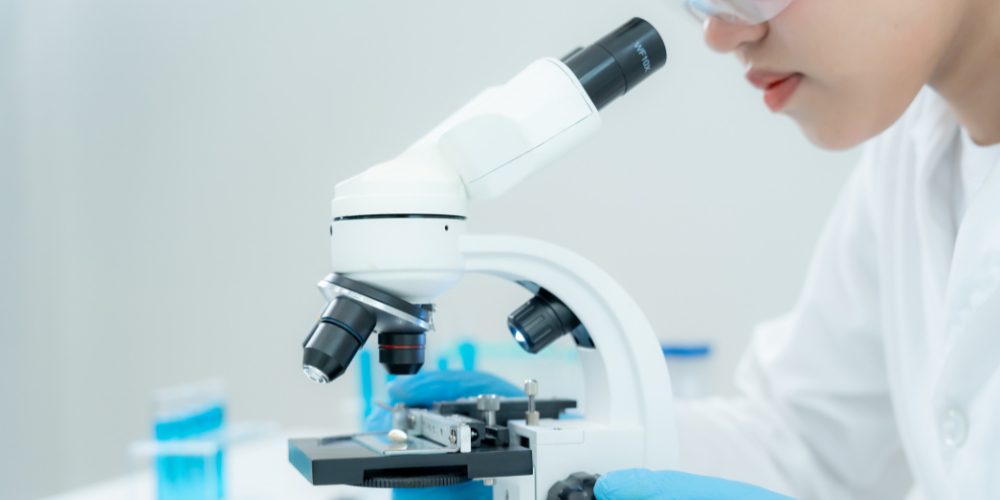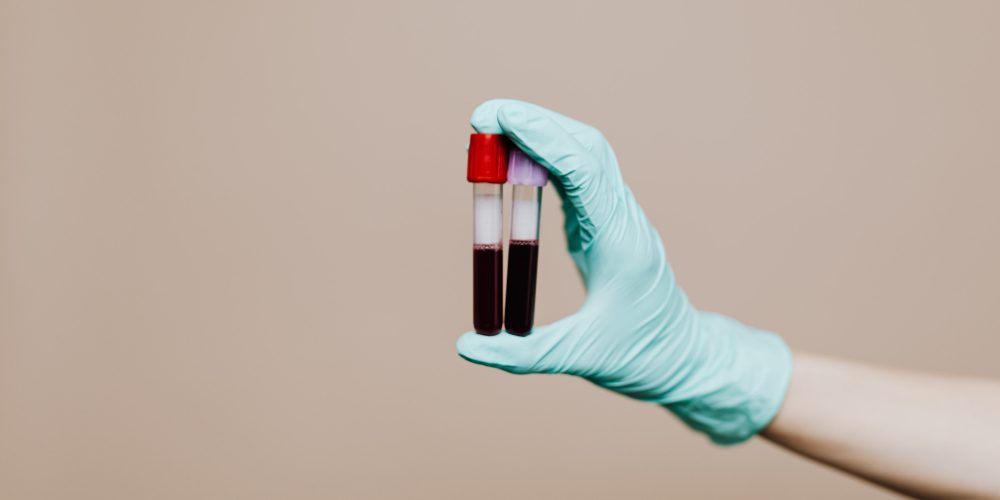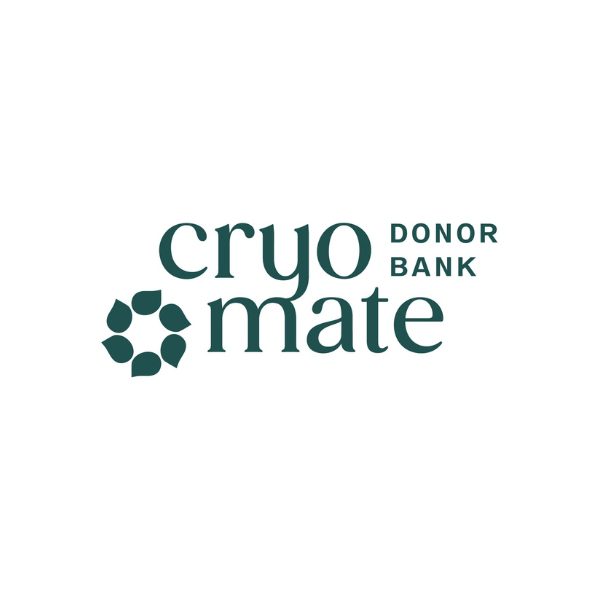Your sperm bank-approved guide to genetic testing donor sperm

Something we know (from TRB Founder Eloise’s very personal experience) is that choosing donor sperm involves a whole lot of questions and considerations.
Genetic testing is one of the most important, and also one of the most misunderstood. Many prospective parents ask the same questions: are sperm donors genetically tested? What exactly does a sperm donor genetic screening include? And how do we know if a sperm bank’s standards are thorough enough?
Genetic testing helps identify inherited health risks before a donor is accepted into a sperm bank. However, as it turns out, screening standards vary widely between sperm banks.
So we sat down with Samantha Augustyn, MS, CGC, a board-certified genetic counselor at Cryomate Sperm Bank, to get to the bottom of it all.
Cryomate is a leading sperm bank, founded by a team of fertility experts – including fertility doctors, scientists, and geneticists – with all the clinical expertise and transparency needed to make your family-building journey feel smooth and supported.
Their team is dedicated to redefining donor screening and safety standards through a thoughtful blend of advanced technology and personalized care.
And with over a decade of experience supporting donor screening and matching, Samantha helps ensure Cryomate’s donors are thoroughly evaluated and that you’ll have clear, transparent information when making decisions, as a prospective parent.
Over to Samantha, for the guide.
The process of genetic testing donor sperm
DNA is organized into chromosomes, which you can think of as a set of books on a bookshelf. Genetic testing examines those books in stages, checking both their structure and their detailed content!
Most people have 46 books, and none of them are stuck together or in the wrong places, but sometimes there will be a chromosomal rearrangement that can lead to fertility problems, miscarriages, children born with birth defects and/or learning disabilities.
Here’s how the process works at Cryomate:
1. Karyotype testing (Checking chromosome structure)
A karyotype test looks at the overall structure of chromosomes. This identifies whether any chromosomes are rearranged, missing, or duplicated.
About 1 in 500 people in the general population have a chromosomal rearrangement. These rearrangements may increase the risk of fertility challenges, developmental conditions, or other health concerns. This step helps confirm the donor has the expected chromosome structure.
2. Microarray testing (Identifying missing or extra DNA segments)
Microarray testing examines chromosomes more closely, looking for small missing or extra pieces of DNA known as copy number variants.
Around 1% of people may have changes at this level. Some of these variants can be inherited and may affect health or development. Microarray testing adds another layer of reassurance by identifying risks that karyotype testing alone might miss.
This is the equivalent of flipping through the pages of the book, making sure they are all there.
3. Exome backbone screening (Identifying specific genetic mutations)
The most detailed testing examines individual genes. This is the equivalent of identifying a specific sentence in the book and looking for a typo.
At Cryomate, donor DNA is analyzed using an exome backbone. This sequences all protein-coding genes and allows testing for over 1,100 specific genetic conditions.
This screening includes:
- Recessive conditions, where a person carries one copy of a mutation but is healthy.
- Dominant conditions, where a single mutation may affect health or future children. These conditions are linked to childhood disorders, neurological differences and hereditary diseases.
This three-layer approach gives us a really comprehensive understanding of a donor’s genetic profile.

Which genetic conditions are included in a sperm donor genetic screening?
Sperm donor genetic screening focuses on conditions that may significantly affect health, development, or quality of life.
These include:
- Conditions associated with developmental delays or intellectual disability
- Childhood-onset medical conditions
- Metabolic disorders
- Neurological conditions
- Birth defects linked to genetic mutations
- Hereditary cancer predisposition disorders
- Conditions that may affect fertility
Carrier screening is a key part of this process. Many people carry at least one recessive genetic mutation without knowing it. Generally, being a carrier is not a reason someone is disqualified as a donor, it is just a piece of information that recipients can use to select a donor that is a good genetic match based on what they are a carrier of.
An extra layer of reassurance comes by all Cryomate donors being evaluated for dominant conditions, which have a 50% chance of being passed on if present. This ensures that donors with higher-risk mutations are not included in the Cryomate donor program. Whist no genetic test eliminates all risk, this genetic screening significantly reduces preventable risks.
Could a sperm donor have a rare genetic mutation?
Rare genetic mutations are more common than many people realize.
Every person carries multiple genetic variants, and most are harmless. However, some rare mutations can affect development, metabolism, or neurological function.
Identifying sperm donor rare genetic mutations helps:
- Reduce preventable inherited risks
- Enable informed donor-recipient matching
- Provide reassurance about donor suitability
- Support better long-term medical understanding
Early identification ensures donors with higher-risk mutations are excluded from donor programs, improving safety for recipients.
Is genetic testing for sperm donors the same at every sperm bank?
In a word, no. Screening standards vary significantly between sperm banks. This is one of the most important factors to understand when selecting a bank to work with as part of your journey.
Most sperm banks offer carrier screening panels that evaluate approximately 200 to 400 genetic conditions. These panels focus primarily on recessive conditions.
More advanced screening may include additional testing, such as:
- Microarray testing for copy number variants
- Screening for autosomal dominant conditions
- Larger gene panels with expanded coverage
In contrast, Cryomate’s screening panel evaluates over 1,100 genes. This panel is reviewed quarterly and updated based on current medical guidelines.
This approach means Cryomate can offer a much deeper level of screening, compared to standard panels – more on this below.

How Cryomate Sperm Bank is leading the way
Cryomate’s expanded testing provides broader insight into potential inherited risks, and there are several key features that make this process particularly rigorous.
- Screening for both recessive and dominant conditions – Most sperm banks focus primarily on recessive carrier screening. Cryomate also screens for autosomal dominant conditions, which may affect future children even if the donor is healthy. This adds an additional layer of safety and reassurance.
- Microarray testing to identify hidden chromosome changes – Microarray testing identifies copy number variants too small for a standard karyotype to detect that occur in approximately 1% of the population. Many sperm banks do not include this level of analysis.
- Exome-based testing for comprehensive gene sequencing – Cryomate sequences all coding genes using an exome backbone with the exception of certain genes that require separate technologies and this is also done for all donors. Exome sequencing allows flexible, updated screening as medical guidelines evolve. This approach also allows for easy additional testing without necessarily needing the donor to come back in if specific genetic questions arise later.
- Strict donor eligibility criteria – Donors with structural chromosomal rearrangements, dominant conditions, or certain high-risk findings are excluded from the donor program.
This strict screening helps reduce genetic risk as much as possible. Not only that, as a prospective parent with Cryomate, you’ll gain full access at no cost to:
- Full genetic testing reports
- Genetic consultation summary documents
- Four-generation family history pedigree
This information is all there to support you in making confident, informed decisions and provides everything you need to seamlessly coordinate your next steps with your medical team.
Looking for a sperm donor? Ask your bank these 3 questions
- What are your policies for updating the donor screening? Cryomate re-evaluate the current medical guidelines quarterly to determine if the genetic testing panels should be updated and more screening implemented.
- What is the process for additional donor testing, if needed? Cryomate aims to offer the most comprehensive genetic testing possible, but if you are a carrier of a condition a donor has not yet been screened for, the team can coordinate further testing with full transparency. Donors provide consent to be recontacted, and because both raw genetic data and DNA samples are securely stored, Cryomate can quickly arrange additional or highly customized testing through specialized laboratories when needed.
- Is a genetic counselor available to speak with me about the testing process, matching with a donor, information to consider? During a private consultation, a genetic counselor will help you understand and compare the genetic profiles of up to three donors, discuss how a donor’s family history may be relevant to your own, and answer your specific questions about what results mean for your family’s future.
Ready to get started with Cryomate? Register for a free account to gain full access to the donor catalog, or contact the team to learn more about your options.
As well as helping to drive industry standards forward through an innovative and pinpoint-precise approach to donor genetic screening, they’re proud to be inclusive, serving LGBTQ+ families, all couples and single parents by choice worldwide.






